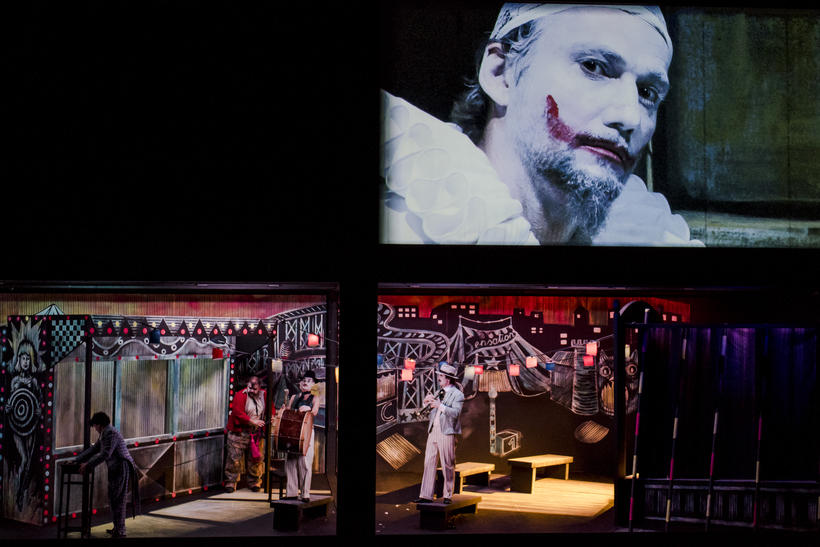It’s always an occasion when one tenor signs up for both halves of opera’s most enduring double bill on a single evening. Through the miracle of video, let’s travel back to the Salzburg Easter Festival in 2015, the year Jonas Kaufmann took the challenge.
In Mascagni’s Cavalleria Rusticana, Kaufmann sings Turiddu, a Sicilian lothario who leaves his blood on the sand in a duel with his lover’s jealous husband. Turiddu’s is the first voice we hear in the score, coloring the silent dawn with a yearning siciliana of love and death set in a minor key. Kaufmann makes the most of the moment, stopping time with his disconsolate grace. Nor does he fail to hit all the required dramatic marks in the big scenes that follow—Turridu’s clash with the jilted Santuzza (here the feral Liudmyla Monastyrska); a woozy, repentant farewell to his mother before the duel Turiddu knows in his bones he will lose. But there’s no getting around the fact that Cavalleria Rusticana belongs to the prima donna.

Whereas in Pagliacci, it’s Canio who rules. And who is Canio? An aging top banana in a band of strolling players. To drum up business, Canio comes on loud, butch, and gregarious. In the troupe’s little show, he’s the bozo in baggy pants, whose Colombina entertains a more dashing lover behind his back.
Well, check out Kaufmann, a gloomy Billy Bigelow materializing out of a crowd in tousled pompadour, Van Dyke goatee, and tattoos he might have scored in the slammer. As for his clown suit, it’s a Prince Charming ensemble of doublet, hose, a mega-millstone collar, and mini-millstone cuffs to match. The voice Kaufmann sings in isn’t glamorous or sensual so much as fevered, blanched in alienation too deep for words. He’s aloof, he’s volatile, and he’s smoking hot.

Still, the script is the script. Real life and the theater are two different things, as Canio publicly insists. But are they? This very night, his young, restless, lonely wife (Maria Agresta) is planning to skip town with a guy who sings to her like a baritone Bocelli—here a suit from the sticks (Alessio Arduini) who has sex with his glasses on. Parsing the semiotics of all this is tricky business, but with Kaufmann front and center, disbelief is not an option.
The production is by Philipp Stölzl, who operates on the Pharaonic scale. The choristers and extras he peoples the stage with are no anonymous multitude but so many personalities with real lives of their own. As for the famous fourth wall that separates the stage from the auditorium, it is partitioned into six cells sometimes utilized individually, sometimes in combination, Jumbotron-style. Some who saw the show live complained that they never knew where to look. At home, we get to watch through the eyes of the veteran video director Brian Large, who always chooses the right shot, long or close-up or in between, from the best seat in the house.
Cavalleria Rusticana and Pagliacci are available to stream on the Carnegie Hall+ Web site
Matthew Gurewitsch writes about opera and classical music for AIR MAIL. He lives in Hawaii

